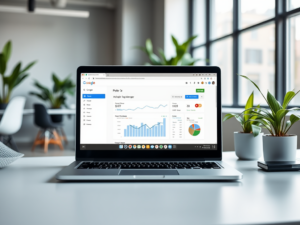In today’s digital landscape, the intersection of social media and SEO is more crucial than ever. While social media may not directly influence search engine rankings, it contributes significantly to overall SEO performance. The collaborative power of social media platforms aids in enhancing online visibility, driving traffic, and establishing a brand’s authority. In this article, we will discuss six key benefits of social media on SEO and how these platforms can elevate your online presence.
The Amplification of Content Reach
One of the primary benefits of social media for SEO is the amplification of content. When you share your content on social media, it garners more visibility, leading to increased traffic to your website. Social media platforms have millions of active users, providing an immense audience for your posts. By sharing your blog articles, infographics, or videos on these platforms, you encourage shares and interactions which can lead to organic backlinks—the lifeblood of SEO. Furthermore, as more people interact with your content, it signals to search engines that your content is valuable, potentially boosting your rankings. Thus, social media acts as a catalyst for content dissemination and recovery.
Enhanced Brand Awareness and Recognition
Social media plays a pivotal role in enhancing brand awareness. When users are frequently exposed to your brand across various platforms, they are more likely to search for your business directly, which contributes positively to SEO. Building a strong social media presence allows you to engage with your audience, answer their questions, and address concerns. This interaction humanizes your brand, helping to cultivate trust and loyalty. Over time, as your brand becomes more recognizable, organic search performances often improve as users directly seek out your products or services. As a result, an effective social media strategy can lead to higher click-through rates (CTR) on your website in search results.
Engagement and User Signals
Engagement metrics are becoming a crucial factor in determining SEO ranking. Social media enables brands to connect more personally with their audience through comments, likes, and shares. When users actively engage with your content, it sends positive signals to search engines regarding the quality and relevance of your pages. Engaging content attracts more interactions, and thus, more organic backlinks, contributing to authority and ranking improvements. By creating compelling social posts that resonate with your audience, you enhance the likelihood of shares, making your content circulate further across the internet. Ultimately, high levels of engagement can signal to search engines that your website is trustworthy and relevant to user queries.
Increased Referral Traffic
Social media acts as an excellent source of referral traffic for your website. When users click on links shared across social platforms, they are directed to your content, which can help increase your site’s overall traffic. This influx of visitors can lead to lower bounce rates and longer dwell times, both of which are beneficial signals for SEO. By optimizing your social media profiles with links back to your website, you enhance the chances of conversions and engagement. Furthermore, it encourages users to explore different sections of your site, potentially leading to additional page views, which can boost your site’s authority in the eyes of search engines. Thus, consistent sharing of quality content can significantly impact your website’s traffic and SEO performance.
Quality Backlinks Through Social Sharing
Backlinks are essential for strengthening your site’s SEO. When your content is shared on social media, it increases the likelihood of being discovered by bloggers, journalists, and influencers who may link back to your site. This ecosystem of sharing and linking helps create a diverse backlink profile, which search engines view favorably. Additionally, quality backlinks from reputable sites can lead to higher trustworthiness and authority for your website, thus improving its overall SEO. Implementing a strategic social media strategy that encourages followers to share your content can leverage the potential for quality backlinks. It’s a cyclical relationship; the more your content is shared, the more it can earn credible backlinks in return.
Conclusion
In conclusion, while social media does not have a direct impact on SEO rankings, its influence is undeniable. From amplifying content reach to driving referral traffic and building quality backlinks, the synergy between social media and SEO presents a wealth of opportunities for brands striving to enhance their online presence. Businesses that recognize and leverage the benefits of social media in their SEO strategies stand to gain a competitive edge, ultimately leading to sustained growth and visibility in search engine results. Therefore, it’s essential to integrate an effective social media strategy that aligns with your SEO goals.
Frequently asked questions
1. Does social media impact SEO rankings directly?
No, social media does not directly affect SEO rankings but helps drive traffic and engagement, which can indirectly influence rankings positively.
2. How can I utilize social media to improve my SEO?
You can improve SEO by sharing high-quality content on social media, engaging with your audience, and encouraging shares to increase visibility.
3. Is it important to have social media profiles for SEO?
Yes, having active social media profiles helps enhance brand awareness, generates referral traffic, and facilitates engagement—all beneficial for SEO.
4. What type of content should I share on social media for SEO benefits?
Share valuable, informative, and engaging content, such as blog posts, videos, infographics, and news relevant to your industry.
5. How often should I post on social media for maximum SEO impact?
Consistency is key. Aim for regular posting, whether it’s daily or a few times a week, to maintain engagement and visibility over time.










